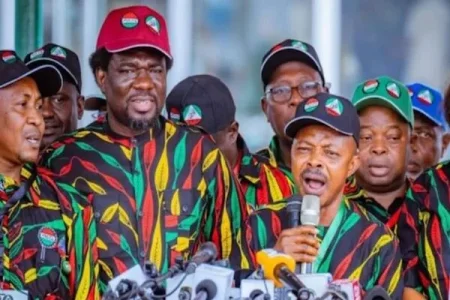
Nigeria's labor unions vow to reject any "paltry" increase to the N60,000 minimum wage, threatening nationwide unrest if demands for a substantial living wage hike are not met. The Tinubu administration faces a high-stakes showdown.
Nigeria's labor unions have drawn a hard line, vowing to reject any proposed minimum wage increase that amounts to a mere "paltry" adjustment to the current N60,000 monthly minimum. This stern warning sets the stage for a potential confrontation with the Tinubu administration, which is racing against the clock to finalize its long-awaited minimum wage review.
Leaders of major unions, including the Nigeria Labour Congress (NLC) and the Trade Union Congress of Nigeria (TUC), have issued defiant statements, threatening nationwide strikes, protests, and disruptive actions if their demands for a substantial "living wage" are not met.
"A token increase will not be tolerated," declared Ayodele Okunfulure, NLC president. "Nigerian workers can no longer subsist on poverty wages. We demand a boost that reflects the soaring cost of living."
The uncompromising rhetoric has raised fears of widespread unrest and economic disruption, with labor analysts warning of a "powder keg situation" that could cripple key sectors if mishandled.
In a bid to avert a crisis, President Tinubu has directed Finance Minister Wale Edun to present a comprehensive minimum wage proposal within 48 hours, which will form the basis for negotiations with labor unions. However, the administration faces a delicate balancing act between placating restive labor groups and safeguarding economic stability.
"This is the Tinubu administration's first major test on the labor front," said Amara Nwankpa of the Lagos Center for Labor Studies. "How they navigate this crisis will set the tone for their relationship with unions and could have far-reaching ramifications for the nation's social fabric."




